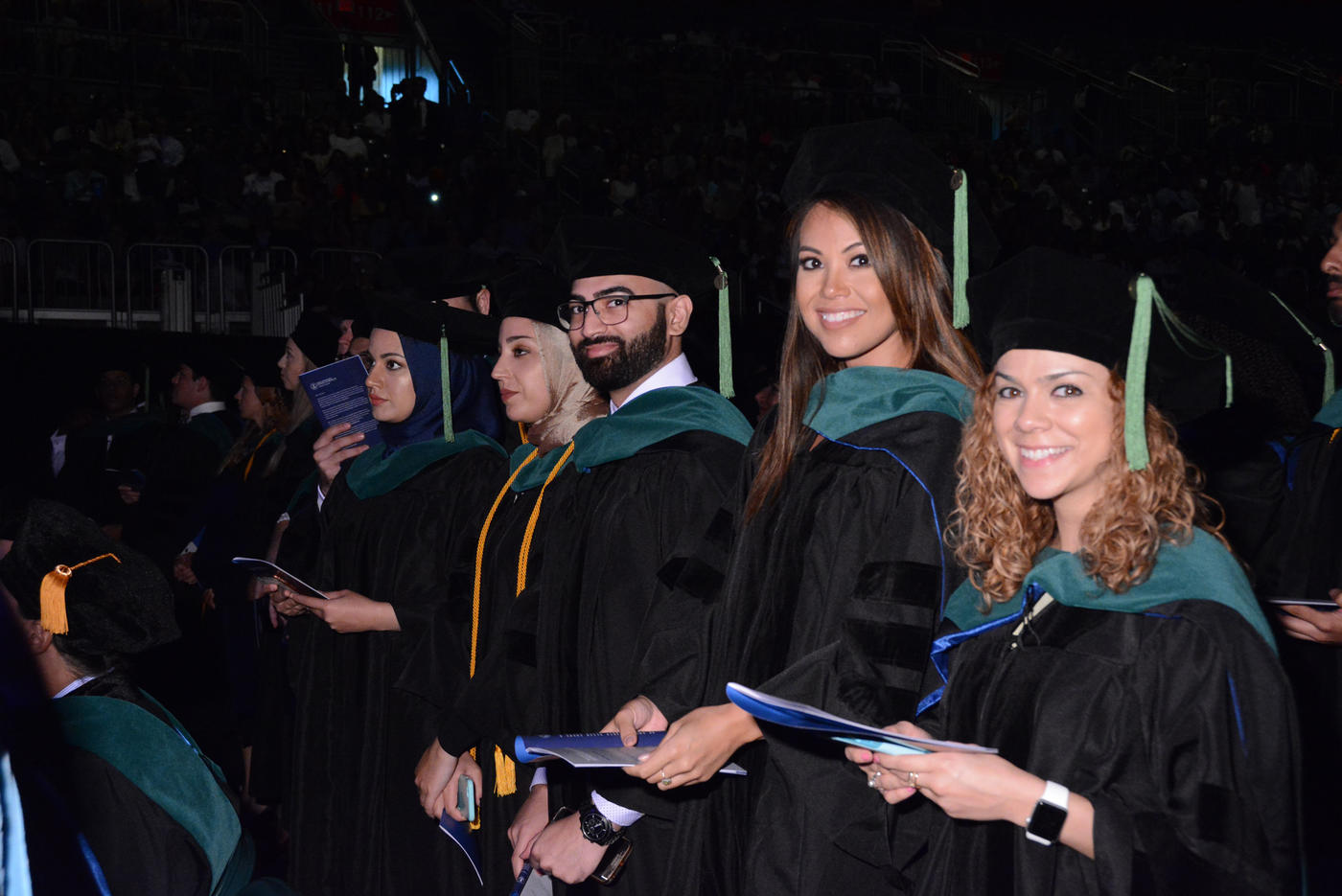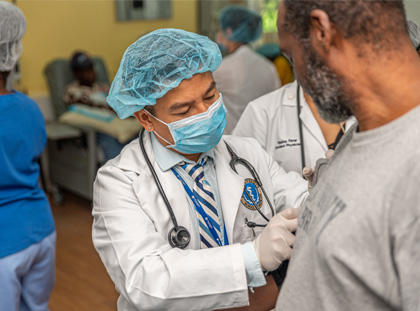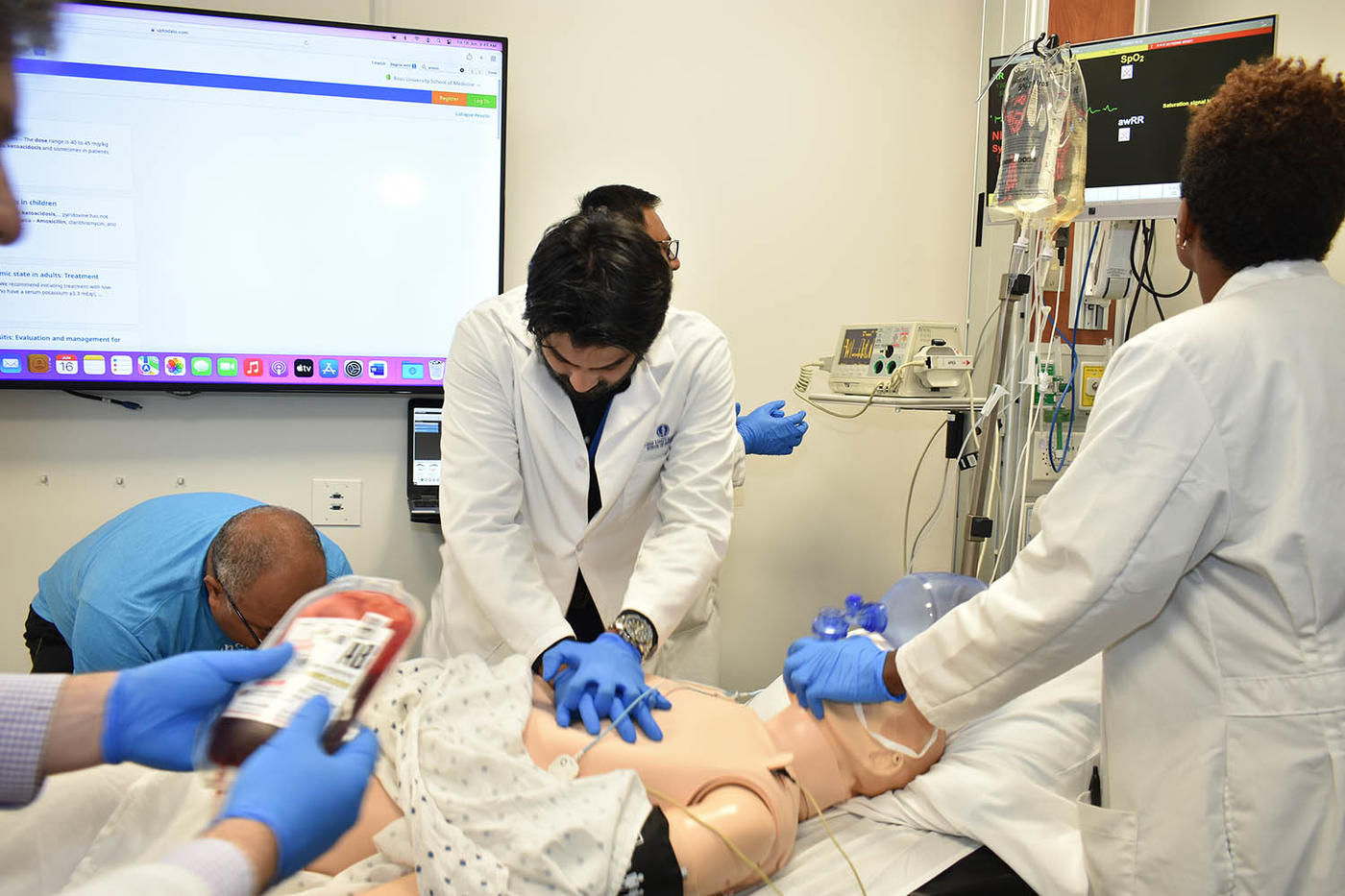Medical school applicants must meet Medical College Admission Test® (MCAT®) requirements and gain clinical experience. They must also work to obtain strong recommendation letters, write solid personal essays, and more.
With so many moving pieces, the journey to preparing for medical school may feel overwhelming. Thankfully, med school prerequisites can be divided into smaller, more manageable categories.
Prerequisites for medical school can be divided into three groups: academic, clinical experience, and required documents.
Academic Prerequisites for Med School
Those interested in applying to medical school must first earn their bachelor’s degree. Although pre-med students often major in hard sciences such as chemistry or biology, this is not a requirement. Pre-med students can pursue any major as long as they complete their pre-medical coursework.
Pre-med students who complete majors outside of science can bring a unique skillset to their careers in medicine. Foreign language majors, such as Spanish, could bridge the gap between physicians and non-English speaking patients. Psychology or behavioral science majors can improve a student’s critical thinking, problem-solving, and communication skills.
Medical school applicants without pre-med coursework will need to complete this coursework prior to applying. While specific course requirements will vary based on the school, common pre-med courses include:
- College English. College level English courses can improve a student’s verbal and written communication. It is also an excellent way to improve their critical thinking skills and comfort conducting independent research.
- College mathematics. College level math is useful when calculating doses, manually calculating a patient’s pulse, reading lab results, and more.
- Biology. Biology courses provide pre-med students with a foundation in anatomy, physiology, natural science, and genetics. This knowledge is useful in medical school and can help students prepare for their MCAT®.
- Physics. Physics courses train students to sort through vast information sets, make connections, and form logical conclusions. This is invaluable during medical school when students practice diagnosing and treating patients based on their symptoms.
- Chemistry. Inorganic, or general, chemistry provides a foundation for pharmacology. This is vital for understanding how medicine can be used to treat, prevent, or manage human disease.
- Organic chemistry. Organic chemistry provides an understanding of how living organisms interact with chemicals. This helps students understand the root cause of diseases and how to manage them.
- Biochemistry. Biochemistry courses provide an understanding of cellular structures as well as metabolic pathways and processes. This helps understand disease and the disease process on a molecular level.
Students should focus on maintaining high grades especially in their pre-medical coursework. This can improve a student’s GPA, deepen their scientific understanding, and prepare them for the MCAT®.
About the Medical College Admission Test®
The MCAT® is an admission requirement for most U.S. medical schools. It helps medical schools determine how prepared applicants are for their program by testing them in four areas:
- Biological and Biochemical Foundations of Living Systems
- Psychological, Social, and Biological Foundations of Behaviors
- Chemical and Physical Foundations of Biological Systems
- Critical Analysis and Reasoning
The total exam score is between the ranges of 472-528 while each section is scored on a scale of 118-132. Earning a high total score on the MCAT® can strengthen a medical school application and make an applicant more competitive.
Each section is designed to test a student’s scientific understanding, ability to critically analyze information, and make logical connections. Including breaks, the MCAT® takes roughly 7 hours and 30 minutes to complete.
The MCAT® aims to test how well test takers can apply the scientific method to various, basic scientific principles. Due to the wide range of topics covered, test takers should give themselves ample time to prepare. We recommend students begin preparing for the MCAT® at the beginning of freshman year in undergraduate studies.
Clinical Experience
Clinical experience can be gathered through paid work, volunteer work, research, shadowing or undergoing a mentorship. We recommend students aim to build a diverse set of experiences for their application. This showcases a student’s ability to adapt to changing conditions and develop diverse perspectives.
Applicants with a diverse set of experiences demonstrate a well-rounded approach to medicine. It helps students develop empathy, cultural sensitivities, a broader understanding of healthcare and work with a diverse range of patients. This can be invaluable when creating compassionate and skilled future physicians.
Required Documents
Required documents for a medical school application include a personal statement and recommendation letters. Those applying through the American Medical College Application Service® (AMCAS®) must submit a personal statement, sometimes called a primary essay. This statement is 5,300 characters including spaces which is roughly 750 words.
In addition, applicants will need to submit official letters of recommendation, an official transcript, and their MCAT® scores. MCAT® scores are uploaded automatically to the AMCAS® once they are released.
Prerequisites for Ross University School of Medicine
Fulfilling medical school prerequisites ensures applicants are academically prepared for medical school programs. At Ross University School of Medicine, (Ross Med) prerequisite classes for our Doctor of Medicine (MD) program include:
- 2 semesters (8 semester hours) of inorganic or general chemistry with labs
- 2 semesters (8 semester hours) of organic chemistry with labs
- 2 semesters of biology or zoology with labs
- 1 semester of physics (4 semester hours) with labs
- 1 semester of college-level math (3 semester hours) – preferably in calculus or statistics
- 2 semesters of English (6 semester hours)
- Canadian students can satisfy the English requirements with one of the following:
- 2 semesters of university humanities where essays were at least 40% of the overall mark
- International baccalaureate English
- Advanced placement (AP) English
Those interested in applying to Ross Med must also submit:
- 2 official recommendation letters. One should be an academic letter from a previous pre-medical professor or a college pre-health advisory committee. One letter should be a character reference from a previous mentorship, employer or volunteer activity.
- 750-word (or less) personal statement. This can be an original essay, or the personal statement uploaded through AMCAS®, the American Association of Colleges of Osteopathic Medicine Application service (AACOMAS), or the Texas Medical & Dental Schools Application Service (TMDSAS)
- MCAT scores, if applicable
- Official college transcript.
At Ross Med, we believe in a holistic admissions process. Your grades and MCAT scores only tell us part of your story. Your pursuits and interests outside the classroom, and your passion to make a difference help communicate your capability as future medical student.
Ross Med does not have a specific GPA requirement or minimum MCAT score. Holistic admissions mean including all relevant information about you as an applicant. So, making decisions with less information — in this case, two fewer data points — isn’t holistic. An MCAT score or GPA is just one of the ways we try to avoid missing an applicant with great potential and to be fairer and more inclusive when making admissions decisions.
Start Preparing Your Med School Application
The prerequisites for medical school aim to provide the background information required for medical studies. With proper planning and hard work, students can confidently build their medical school application. We recommend applicants begin building their medical school application early to have ample time to gather the right documents.
Want to learn more about Ross Med’s MD program requirements? Visit our website or submit this form for more information.




